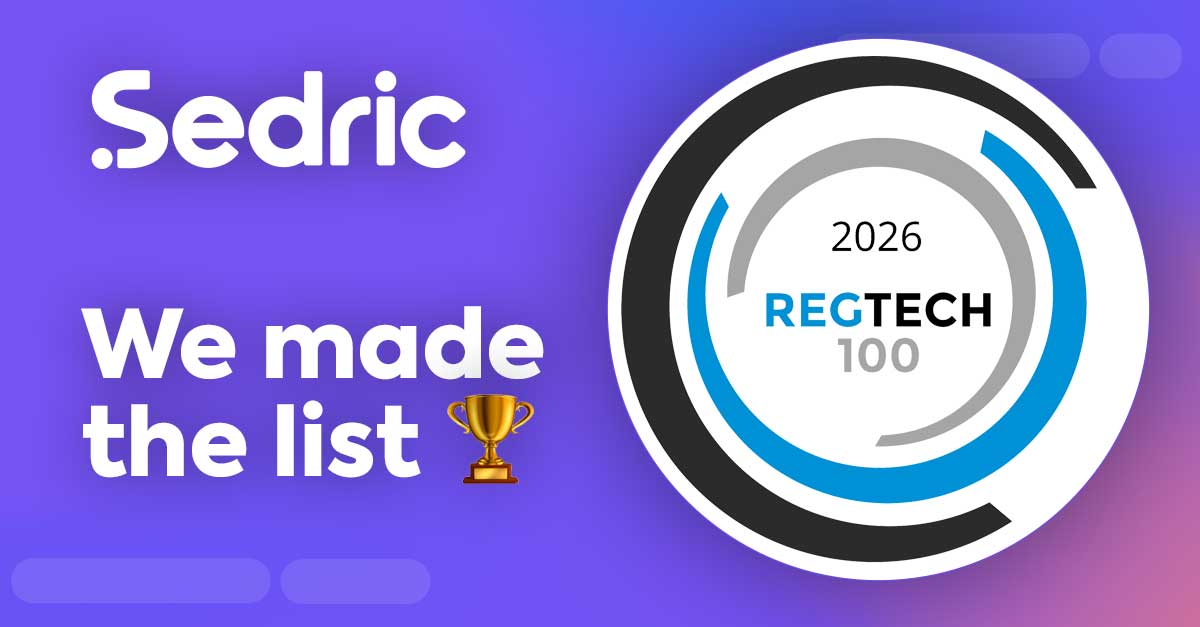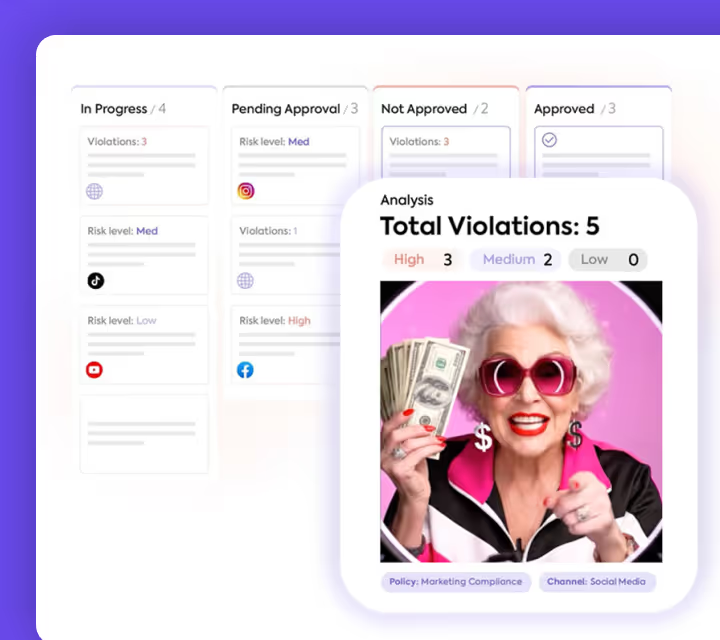There’s no question that compliance is a must. Running a company in today’s rapidly changing and complex regulatory climate requires a strong compliance program and team. But good compliance - the kind that is built into a company’s ethos and is airtight - is not just about juggling red tape and avoiding lawsuits. Good compliance is actually key to growth and success. Done well, it can give you a competitive edge that sets you apart from other companies.
Particularly as a company is entering a stage of scaling, it’s imperative to have an efficient compliance system in place. It sets the groundwork for acquiring a high volume of clients, building successful partnerships and expanding to new markets, and goes a long way to preventing problems that can quickly snowball and become catastrophic. But that’s not all.
Here are 6 ways compliance gives your company a competitive advantage:
- You mitigate risks, early.
Well designed compliance programs and policies are meant to detect potential violations and risky practices early on. The earlier, the better. Whether it’s an affiliate marketer who failed to disclose their relationship to your company or an overpromise by a support staff member, compliance errors present costly legal and financial liabilities. But as a growing company experimenting with and launching new campaigns, mistakes and errors will happen. You need a way to quickly and proactively identify and address risks. In today’s world, the best way to catch risks early is to work with an AI-driven compliance tool that is trained to detect and remediate risk immediately. This compliance safety net can give you a huge edge and it’s best to start when your company is still small.
Learn more about how fintechs use AI for marketing compliance.
- You can grow faster.
Once you’ve reduced risks through good corporate governance and a streamlined compliance program, growth becomes much easier and more seamless. You can move faster and break fewer things. (Hopefully none, in fact.) If you are putting modern technology to use and have an automated system in place for monitoring and managing company wide compliance, scaling the system should be simple. Whether you’re adding new clients, expanding to new markets or partnering with another company, the system will be set up to grow with you and continue to offer automated ways to screen potential partners, identify risks, flag violations and implement fixes.
- You set the stage for global success.
Similarly, having a strong compliance program makes it much easier to expand to new countries. Compliance gets trickier as you scale because each country has a unique legal climate and requirements may vary greatly. It’s best to have a compliance system in place before this happens so that the growth can happen effortlessly. Ideally, you want to take advantage of a compliance tool that offers multijurisdiction and multi language monitoring to ensure that your company and affiliates are adhering to the specific policies and regulations of each jurisdiction and in any language.
Learn more about how to ensure compliance across borders.
- You establish a trustworthy brand.
In every industry, people want to work with companies they can trust. Want a strong brand reputation? Make sure you’re known for your values, transparency and ethical marketing practices. It’s a no-brainer and this can be a decisive factor in setting your company apart from the competition.
- You save time and resources.
Time is money, so whenever you implement policies or work with tools that increase efficiency, you’re contributing to your company’s bottom line. Today’s compliance technology is designed to automate many aspects of compliance and integrate easily into your teams’ existing workflows. With a minimal investment of employee time, you can set up systems that automate tasks such as monitoring affiliate compliance and helping ensure customer facing agents are compliant, in real time. An AI-driven tool like Sedric can even do this in hundreds of languages, with instant translation to English.
- You foster a company culture of excellence.
Compliance is not just the responsibility of the compliance team, HR or legal department. It should be integrated into the company culture. As a core company value, it’s something to take into consideration in every aspect of the business from hiring decisions, mergers and acquisitions, product development, growth strategies and more. This helps prevent violations, but it also builds a positive work environment. When compliance is built into the ethos of your company, you help build employee trust and satisfaction.
Happy employees and high employee satisfaction means lower turnover and more employee loyalty. Plus, it helps you attract top talent to your company, specifically within the compliance department but throughout the company as well. Taken together, these present a huge competitive advantage.
—
A well-built compliance program goes beyond following the rules and staying up to date in a rapidly changing regulatory climate. Ideally, it should be an ingrained part of your company values and a key part of your value proposition. Good compliance is good marketing and a smart growth strategy. It allows you to grow fast, without risk. It helps build your reputation, keep clients and employees loyal, and drives sustainable success.
For global companies working in a highly competitive economic environment, compliance can be extremely complex. But technology offers a powerful way to streamline compliance processes and monitor across borders, in many languages, within large teams and among various affiliate partners. Investing in compliance isn't just necessary for survival; it's a powerful strategy for setting your brand apart and creating a winning company.







